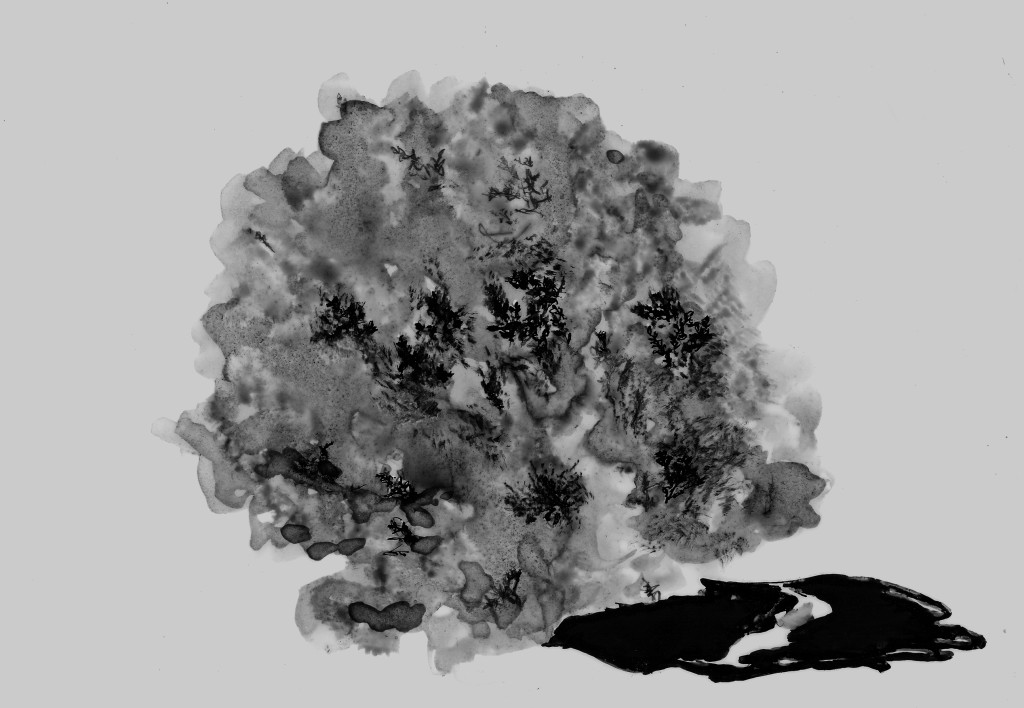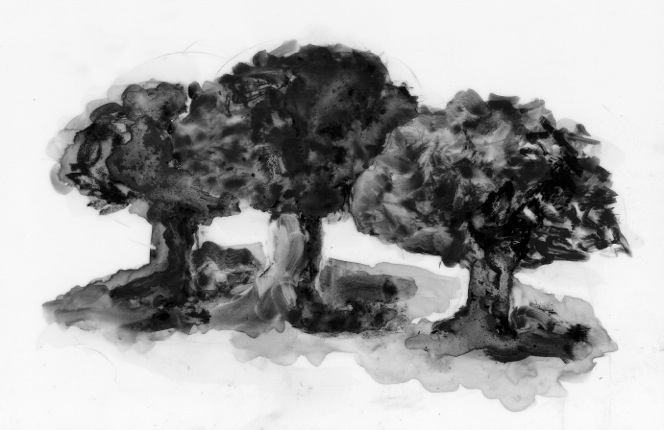from the Aeneid, Book III
1. fuge litus avarum
gave fate to the wind
at first summer when father
ordered wild prophecies of
uninhabited lands—
left Troy smoking in ruins
behind us, god-scattered
onto the waves, all of us
refugees covered in tears
lugging family and household gods
made
a place Thracians plow
once ruled by Lycurgus—
ancient ally and with gods
friendly to Troy
(at least while it stood)
Landing I wasted no time
raising walls though the omens
were black and named it
AENEADOS
after myself. Quick to sacrifice
to mother Venus and mighty Jove
I slaughtered a bull on the shore
as luck would have it a mound
nearby with a high
Cornell’s bush and bristling myrtle
thick with sharp shoots
BLOOD
oozed as I grabbed some branches
to cover the altars
and mirabile dictu
it all went south
an awful sign
the thing screamed
as I tore it BLOOD
spilled black from soil
and spread gore on
the earth—a shudder
ran through me again
I peeled back the bark
of another tree trying to see
what’s what BLOOD
spurts out and my mind
grasps for country nymphs and
Mars (father to these fields) to propitiate
that they might make these fates
green again
but after I wrestle the third bush
and come up covered in blood
(should I tell you the next part?)
a groan comes up from deep
in the root-wound
and a voice reaches me:
“AENEAS
why must you tear at me?
I’m someone you know, a poor
bastard not worth dirtying
those pious hands over.
That’s right—
I’m Trojan. RUN
from me, RUN
from this greedy shore.
They got me here, planting spears
in my side that now flower
from me, Polydorus.”
I stood frozen in shock.
Everything seized up in my mind
and words caught in my throat—
This guy, Polydorus, had secretly
held gold from unlucky Priam—
who’d lost faith in Trojan arms
over the course of the long seige—
in trust with the Thracian king.
When the city finally fell
that king cut us loose, seeking
Agamemnon and
selling Troy out completely.
Greed!
He killed Polydorus and pocketed
all the gold.
Terror slowly eased
out of my bones.
I consulted my father.
He and everyone agreed—
we’d leave this unlucky land,
after giving Polydorus
a proper funeral.
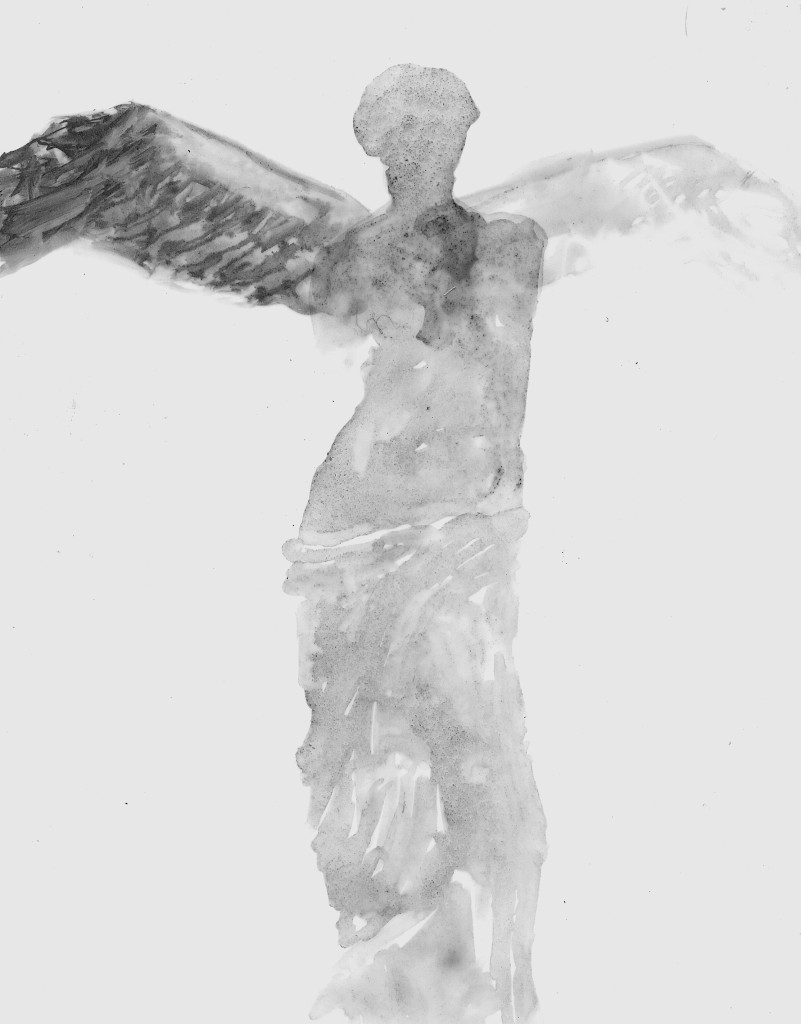
2. Mutandae sedes.
soft southerly winds
Doric seas
Apollo’s island
sacrifice
friendship
prophecy
father
interprets again—
we set out
for Crete, ancient birthplace
hundred cities amidst waves
breeze blows astern
to push us
*
Arriving I build walls
call it Troy, encouraging happy folk
to cherish new home and citadel
raised to protect them.
Ships drawn to shore
youths rejoice in
nuptials
I make laws and assign lands
—suddenly
BLIGHT
from some dark corner of heaven
touches crops and tree limbs
withered and pitiable,
a deadly season
begins
people drop dead in the streets
others too tired to drag their bodies away
DOGSTAR
blasts fields with barrenness
grass goes dry and harvest
never comes—
Father says backtrack to Delos
to ask Apollo’s oracle
what we should do
what aid for our labors,
what course take?
at night
household gods sacred to Troy
appear to me in my sleep
glowing in bright light
poured in through the open windows
by full moon
easing my cares with these words:
“Don’t bother going to Delos
Apollo told us
his prophecy and sent us to you
we’ve come this far and we’ll sing
to the stars your descendants
Do not
desert your labors
through long exile
to found a great city—
But
you must leave Crete.
It’s not these shores Apollo offered you.
There’s a place the Greeks call ‘Hesperia’
an ancient land, tough in arms
rich in soil
the inhabitants now call it
‘Italy’
after one of their chiefs.
This is the place for you.
From here came Dardanus
and father Iasius
who gave birth to our race
Get up and go and make sure
to tell your
old man—
seek again the Italian lands
Jupiter’s cut you off
from Cretan fields.”
*
Sweat
frozen to spine
I awake
make offering
wild words
father remembers:
Cassandra made mention of
Italy but
who’d believe her?
Yet
let us yield
to this new prophecy
everyone cheering we
set keel to breakers
once more
Translating the Aeneid began as homework, and like most good things, became an obsession and a bit of a poetic white whale. These days it’s both a ritual and a source of enjoyment, though it continues to make me think about issues of politics, empire, and the nature of poetry (and narrative) itself. As I’ve mentioned elsewhere, in the film version Charlton Heston would’ve made a great Aeneas and Janet Leigh a wonderful Dido, with Marlene Dietrich as Venus and Orson Welles doing voiceover and cameos as Virgil, a la Touch of Evil.
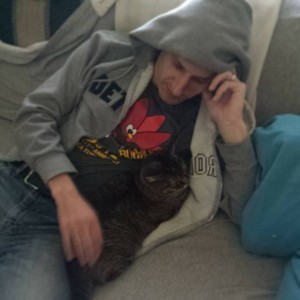 David Hadbawnik is a poet living in Buffalo, NY. Part one of his translation of the Aeneid was published in 2013 (Little Red Leaves); part two is forthcoming in 2014. In 2012, he edited Thomas Meyer’s Beowulf (Punctum Books), and in 2011 he edited (with Sean Reynolds) selections from Jack Spicer’s Beowulf for CUNY’s Lost and Found Document Series. Other publications include Field Work (BlazeVOX, 2011), Translations From Creeley (Sardines, 2008), Ovid in Exile (Interbirth, 2007), and SF Spleen (Skanky Possum, 2006). He is the editor and publisher of Habenicht Press and the journal kadar koli, and a co-editor of eth press.
David Hadbawnik is a poet living in Buffalo, NY. Part one of his translation of the Aeneid was published in 2013 (Little Red Leaves); part two is forthcoming in 2014. In 2012, he edited Thomas Meyer’s Beowulf (Punctum Books), and in 2011 he edited (with Sean Reynolds) selections from Jack Spicer’s Beowulf for CUNY’s Lost and Found Document Series. Other publications include Field Work (BlazeVOX, 2011), Translations From Creeley (Sardines, 2008), Ovid in Exile (Interbirth, 2007), and SF Spleen (Skanky Possum, 2006). He is the editor and publisher of Habenicht Press and the journal kadar koli, and a co-editor of eth press.
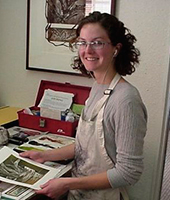 Carrie Kaser is an artist, printmaker, and educator in Albuquerque, New Mexico. She is a Tamarind-trained lithographer and has studied at the Rhode Island School of Design, University of New Mexico, and University at Buffalo, where she completed an MFA in Visual Studies. Her work explores the construction of narrative and the interpretation of symbols through memory and past experience. Her prints and drawings have been featured in exhibitions nationally.
Carrie Kaser is an artist, printmaker, and educator in Albuquerque, New Mexico. She is a Tamarind-trained lithographer and has studied at the Rhode Island School of Design, University of New Mexico, and University at Buffalo, where she completed an MFA in Visual Studies. Her work explores the construction of narrative and the interpretation of symbols through memory and past experience. Her prints and drawings have been featured in exhibitions nationally.
